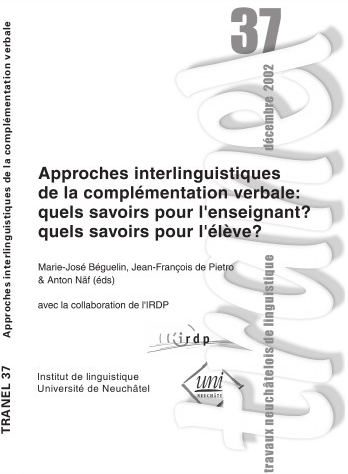Les compléments ne complètent-ils que le verbe et le verbe n’est-il complété que par des compléments?
DOI :
https://doi.org/10.26034/tranel.2002.2693Résumé
This paper chiefly deals with the notions of verb ruling, copulative complement and sentence adverbials, presented within the scope of a contrastive approach between English and French grammatical terminologies.
In the theorical model of grammar proposed by Noam Chomsky, the traditional concept of the government of an object by a verb has been extended to other linguistic units in a sentence. Here we propose to reintroduce the old and apparently obsolete notion of regimen - régime in French grammar - in order to isolate a type of government in which the verbs strictly require and determine the linguistic units depending on its occurrence.
What is not régime du verbe is called «complément», including those components which complete copulative verbs, in accordance with the English use of complement, corresponding to the traditional attribut in the French grammatical terminology.
Complements are divided into essential, accessory and associated (i.e., associés). The first ones are required but not governed by the verb. The second ones depend on the verb but are neither required nor governed by it. The third ones are sentence adverbials, simply associated with the predicate, particularly when they indicate either the writer’s/speaker’s attitude to the reader/listener or their attitude to the topic at hand.
This new organization of the components which form or complete the predicate is supported by a set of nine grammatical tests to be thoroughly demonstrated at the end of the paper (test of negation scope, focalization, conversion to pseudo-cleft sentence, topicality, embedding of a relative clause, interrogation, covariance with the subject of the verb, passivity process, selection of prepositions).


